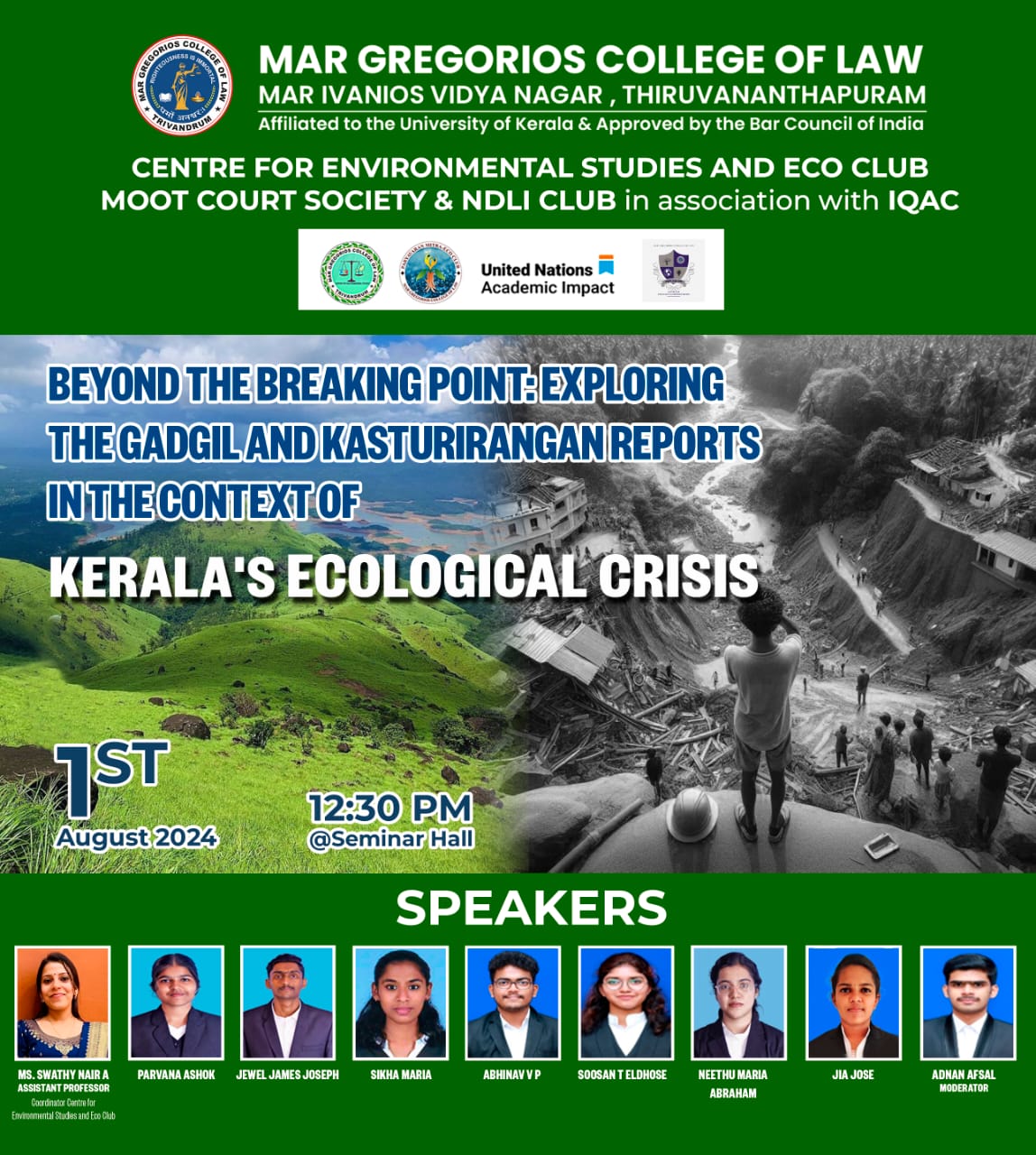
The Ecological Crisis in Kerala: A Call for Sustainable Solutions
Introduction
Kerala, often referred to as "God's Own Country," is known for its lush landscapes, serene backwaters, and rich biodiversity. However, beneath this picturesque facade lies an escalating ecological crisis that threatens the very essence of this South Indian state. From deforestation and erratic monsoons to pollution and climate change, Kerala is grappling with environmental challenges that require immediate attention and sustainable solutions.
Deforestation and Habitat Loss
Kerala’s forests, which once covered a significant portion of the state, are rapidly dwindling due to urbanization, agriculture, and illegal logging. The Western Ghats, a UNESCO World Heritage Site, are home to a rich variety of flora and fauna, some of which are endemic to the region. However, deforestation has led to habitat loss, endangering species such as the Nilgiri tahr, lion-tailed macaque, and various bird species. The loss of forest cover has also disrupted the delicate balance of the ecosystem, leading to soil erosion, reduced water retention, and increased vulnerability to natural disasters.
Water Scarcity and Pollution
Kerala, despite being blessed with numerous rivers, lakes, and backwaters, is facing an acute water crisis. The state’s rivers are increasingly polluted due to industrial discharge, agricultural runoff, and domestic waste. The famous Vembanad Lake, a vital water body and a Ramsar site, is choking under the weight of pollution and encroachments. Additionally, erratic rainfall patterns, exacerbated by climate change, have led to droughts in some regions, further aggravating the water scarcity issue.
Climate Change and Its Impact
The impacts of climate change are becoming more pronounced in Kerala. The state has witnessed an increase in the frequency and intensity of extreme weather events such as floods, landslides, and cyclones. The devastating floods of 2018 and subsequent years serve as grim reminders of Kerala’s vulnerability to climate change. Rising sea levels also pose a significant threat to Kerala’s coastal communities, with saltwater intrusion affecting agriculture and drinking water sources.
Agricultural Challenges
Kerala’s agriculture, which relies heavily on monsoon rains, is facing multiple challenges. Erratic monsoons, coupled with unsustainable farming practices, have led to declining crop yields. The use of chemical fertilizers and pesticides has degraded soil quality and led to the contamination of water bodies. Farmers are also struggling with the loss of traditional crop varieties, which are more resilient to local climatic conditions but are being replaced by high-yield, but less resilient, crops.
Urbanization and Waste Management
Rapid urbanization in Kerala has brought with it the challenges of waste management and environmental degradation. Cities like Kochi and Thiruvananthapuram are grappling with the disposal of solid waste, leading to landfill overflows and the contamination of land and water resources. The lack of proper sewage treatment facilities has further compounded the problem, leading to the pollution of rivers and other water bodies.
Towards Sustainable Solutions
Addressing Kerala’s ecological crisis requires a multi-faceted approach that involves government intervention, community participation, and sustainable development practices. Here are some steps that can be taken:
-
Reforestation and Conservation: Initiatives to restore degraded forests and protect biodiversity are crucial. Community-based conservation programs can engage local populations in protecting their natural heritage.
-
Water Management: Implementing rainwater harvesting, promoting water-efficient agricultural practices, and improving waste management infrastructure can help alleviate water scarcity and pollution issues.
-
Climate Resilience: Developing climate-resilient infrastructure and adopting sustainable farming practices can help mitigate the impacts of climate change. This includes promoting traditional crop varieties that are more suited to local conditions.
-
Sustainable Urbanization: Urban planning should prioritize green spaces, efficient waste management systems, and the conservation of natural water bodies to ensure that development does not come at the cost of the environment.
-
Public Awareness and Education: Raising awareness about environmental issues and promoting sustainable practices at the grassroots level is essential for long-term ecological health.
Conclusion
Kerala's ecological crisis is a complex issue that requires urgent and sustained action. The state's rich natural resources, which have sustained its people for generations, are now under threat. By embracing sustainable practices and fostering a culture of environmental stewardship, Kerala can overcome these challenges and ensure a prosperous future for its people and its environment. The time to act is now, before the ecological crisis spirals beyond control.
